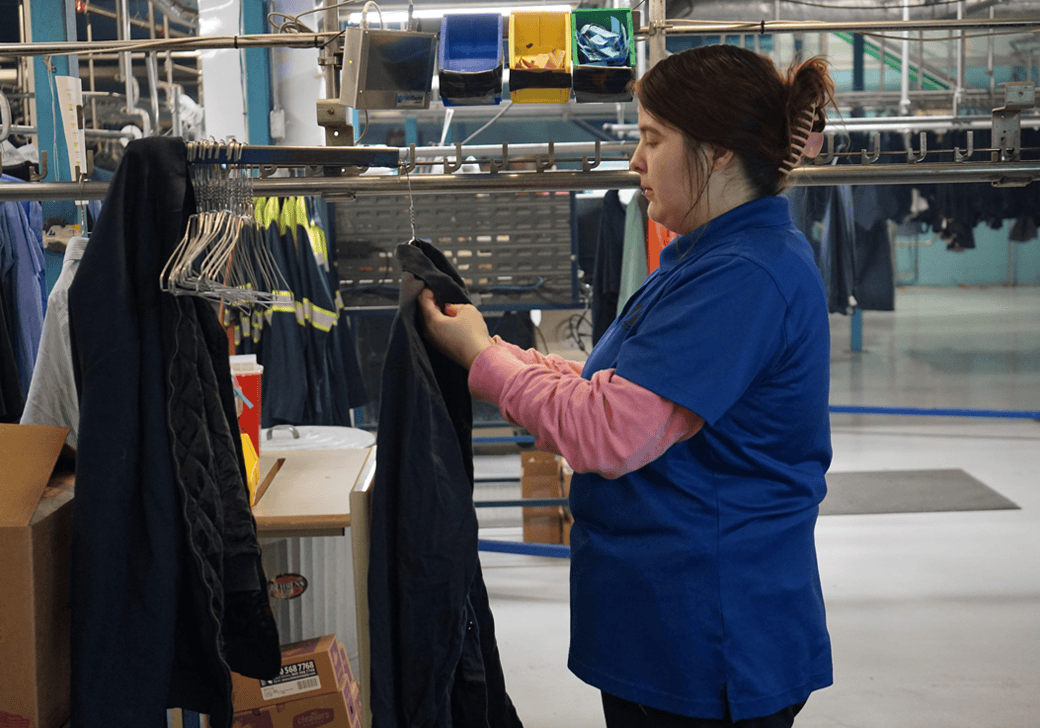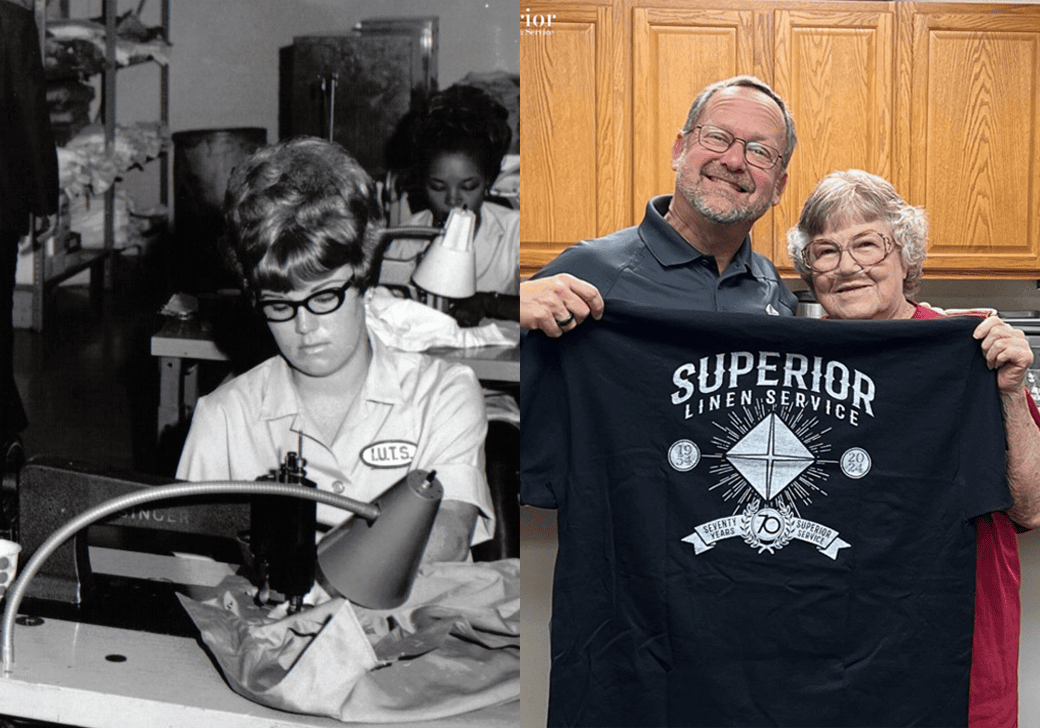Laundry operators often complain about rising labor costs, coupled with the challenges of retaining staff amid fierce competition from laundries and other businesses outside the linen, uniform and facility services industry. Textile Services Weekly recently asked experts for their take on how companies can succeed in today’s labor market.
Phoebe Ellis, owner of Lace House Linens in Petaluma, CA, said her company has responded by beefing up efforts to show employees and prospects that it cares about them and wants them to succeed. Lace House is an independent operator. They provide hospitality and food-and-beverage (F&B) linens to customers throughout Napa Valley and the San Francisco Bay area. The company’s outreach to staff has delivered positive results, said Ellis, a fourth-generation leader of Lace House. “We are able to get plenty of great people,” said Ellis, who noted that the company is celebrating its 110th anniversary this year. She credits their success to placing significant emphasis on providing employees with a quality experience that helps them feel that they have a stake in the company. “We’ve really invested in our culture, our people, our environment,” she said. “That has been a priority coming out of COVID. We want to keep them engaged. We want to keep them involved in our business.”
Showing employees you care about them is particularly important for non-native English speakers, said Eugene Ketter, director of HR and administration for Alsco Uniforms in Salt Lake City. He described an in-depth orientation program that Alsco Uniforms provides to these employees. “The approach is to create a supportive, inclusive environment, while adjusting communication to be clear and simple,” Ketter said. “This can involve translating documents in multiple languages, avoiding jargon, using visual aids, encouraging questions and being patient. Providing additional resources and/or pairing new hires with a mentor can also significantly help employees build confidence. We’ve also been able to leverage technology to make communication simpler for employees.”
Another factor in winning staff loyalty – irrespective of nationality or language skills – is to provide them with a quality experience, including ample opportunities for career growth. “We continue to invest heavily in onboarding and training our employees properly,” Ketter said. “Both are extremely important for employee retention because they improve job satisfaction, engagement and commitment to company values. When employees feel the company is willing to invest in their development, they are more motivated, skilled and likely to stay, as they see clear pathways for long-term growth and sustainability.”
Kortney Overzet, vice president of people development & culture, for Spindle, a supplier partner based in Woodridge, IL, elaborated on the need for enhanced staff training and onboarding. “In my opinion, they have an immense impact on employee satisfaction and therefore retention,” Overzet said. “Looking at onboarding specifically; this is your chance to make a great first impression with a new team member. How are you preparing them for day one? Are you ensuring that they feel set up for success and know what to expect?”
Consultant Gerard O’Neill, president and CEO of American Laundry Systems, Derry, NH, added that he’s recently seen several plants with little or no problem getting and keeping staff. In addition to training and onboarding, competitive pay and good working conditions help foster an environment that aids recruitment/retention. “They’re nicer to them,” he said of these companies’ approaches to employee relations. “Accommodations can also make a difference,” O’Neill said. “They have a nice break room, not a little shanty off to the side of the building somewhere. Stuff like that matters. You retain your employees by treating them really nicely.”
Employees sometimes fret that staff will leave them to make 25 cents an hour more somewhere else. Laundries can address this risk by improving compensation plans. “Look, you’re always going to have a competitor, or some other businesses in town that are going to be luring your employees away,” O’Neill said. Competitive pay can help you retain staff who might otherwise seek opportunities elsewhere. “Minimum wage doesn’t cut it anymore,” he said. “Treat them right and reward them.”
Watch for follow-up coverage of this issue in an upcoming edition of Textile Services magazine.
Sign Up For Our Newsletter
Receive the latest updates on the linen, uniform and facility services industry from TRSA delivered straight to your inbox.








